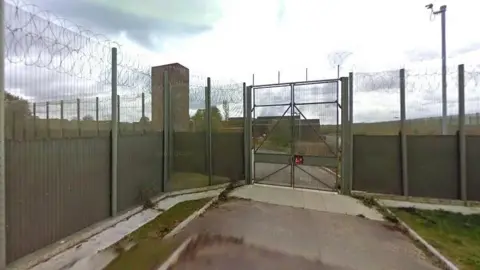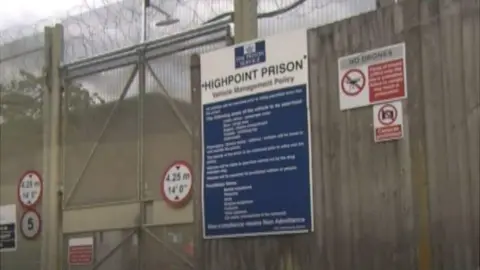Prison fails to prepare men for release - watchdog
 Google
GoogleA prison in England has failed to deliver its core purpose of preparing inmates for life after release, a watchdog has said.
About 1,300 men live at HMP Highpoint near Haverhill, Suffolk, and most of the men have been convicted for drug-related or violent offences.
HM Inspectorate of Prisons also said about 50 detainees shared "overcrowded cells, designed to one occupant".
The Ministry of Justice (MoJ) said it was trying to improve training opportunities for inmates.
Charlie Taylor, HM chief inspector of prisons, said: "There was much to admire about Highpoint, which was safe, well-maintained and had excellent relationships between staff and prisoners.
"But, like too many other prisons, its work on education, training and resettlement wasn’t good enough.”
HM Inspectorate of Prisons conducted an unannounced inspection in October.
The prison, established in 1977, is one of England's largest category C facilities.
'Poorly co-ordinated'
The report found there was not enough support given to prisoners to help them get employment upon release.
Prisoners from a black and minority ethnic background formed 42% of the population.
The report said out of the 211 jobs believed to be "more sought after" for inmates, only a third were allocated to prisoners from this background.

Inspectors said drugs and other illicit items were also "easily available in the prison".
Evidence indicated that the drugs were linked to violence, debt and bullying, said the report.
Steps taken to address risks were "neither comprehensive nor well-coordinated", the report concluded.
Mr Taylor continued: "The prison needed to do much more to develop a more coherent and robust approach to tackling the ingress of drugs, the demand for them and their consequences.”
A Prison Service spokesperson, from the MoJ, said it was "pleased inspectors recognised the efforts of our hardworking staff" and found the facility "orderly and safe".
“We are working closely with the education provider to improve learning and training opportunities so prisoners are able to get the skills and qualifications they need to turn their lives around," the spokesperson added.
The MoJ also said it had increased staffing levels nationally, with 4,000 more prison officers than in March 2017.
Find BBC News: East of England on Facebook, Instagram and X. If you have a story for us, email [email protected] or WhatsApp on 0800 169 1830
